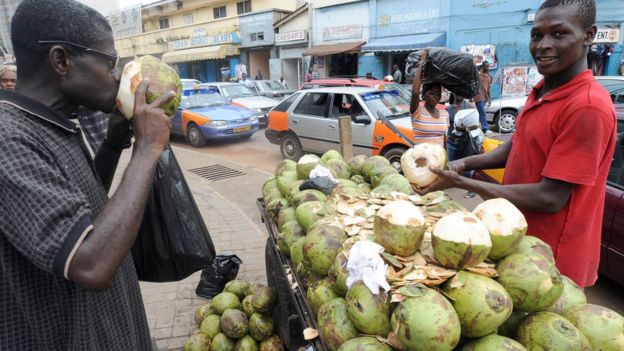Living in Ghana over the past year has been a tumultuous experience, marked by severe economic challenges. In February 2022, one US dollar was worth 6.5 – 7 Ghanaian cedis, but by October, it soared to 15 cedis, settling at 12 cedis later. This currency depreciation was driven by rising US Federal Reserve interest rates, government debt repayment pressures, and fears of default on domestic obligations, prompting investors to withdraw savings from T-bills and bonds to buy dollars. The resulting dollar scarcity fueled inflation, with fuel price hikes driving up the cost of goods.
For instance, watermelons that once cost less than 10 cedis now start at 25 cedis for the smallest ones. A gallon of Frytol cooking oil reached 1,000 cedis, as traders raised prices to cover restocking costs amid the cedi’s volatility. Even when the cedi stabilized at 12 per dollar, food prices remained high. Traders cited the need to recover losses from expensive stock, revealing a tendency to prioritize short-term gains over affordability.
What is the actual cost?
Consider Guinness Ghana, which sources sorghum locally, processes it with imported additives, packages it, and distributes it nationwide, yet sells a bottle for under 10 cedis while covering taxes, utilities, and labor. In contrast, a coconut seller harvests a coconut after 3-6 years, transports it to Accra, and sells it for 5 cedis—half a dollar—without processing or storage costs. Mind you, the coconut produces fruits all year long. Similarly, imported bottled water, despite duties and freight, often matches or undercuts locally produced water prices.
At fruit stands, vendors let bananas rot rather than lower prices, preferring to sell them as animal feed than offer reasonable rates. This reflects a broader issue of greed and short-sightedness in Ghana’s markets, where traders exploit necessity, including hunger. This mindset extends to leadership, where poor decisions by a few exacerbate economic woes, costing Ghana both money and talent. Each year, the country trains teachers and nurses with taxpayer funds, only to lose them to better opportunities abroad, undermining the future for current and unborn generations.
The difficulty lies not so much in developing new ideas as in escaping from old ones.”
John Maynard Keynes.
The Ghanaian dream, as seen on platforms like X, often boils down to saving enough to emigrate. This raises painful questions about identity and ambition in a resource-rich continent laced with great art and culture. The greatest aspiration, however, is to leave. It’s tempting to wonder if the builders of Egypt’s pyramids or Mali’s great universities were truly our ancestors, or if leaders like Kwame Nkrumah and Thomas Sankara were outliers. The struggle continues, marked by resilience, frustration, and a hope for change.
This article was couched at the end of 2022 and finalized in 2023 and might not reflect current happenings.





